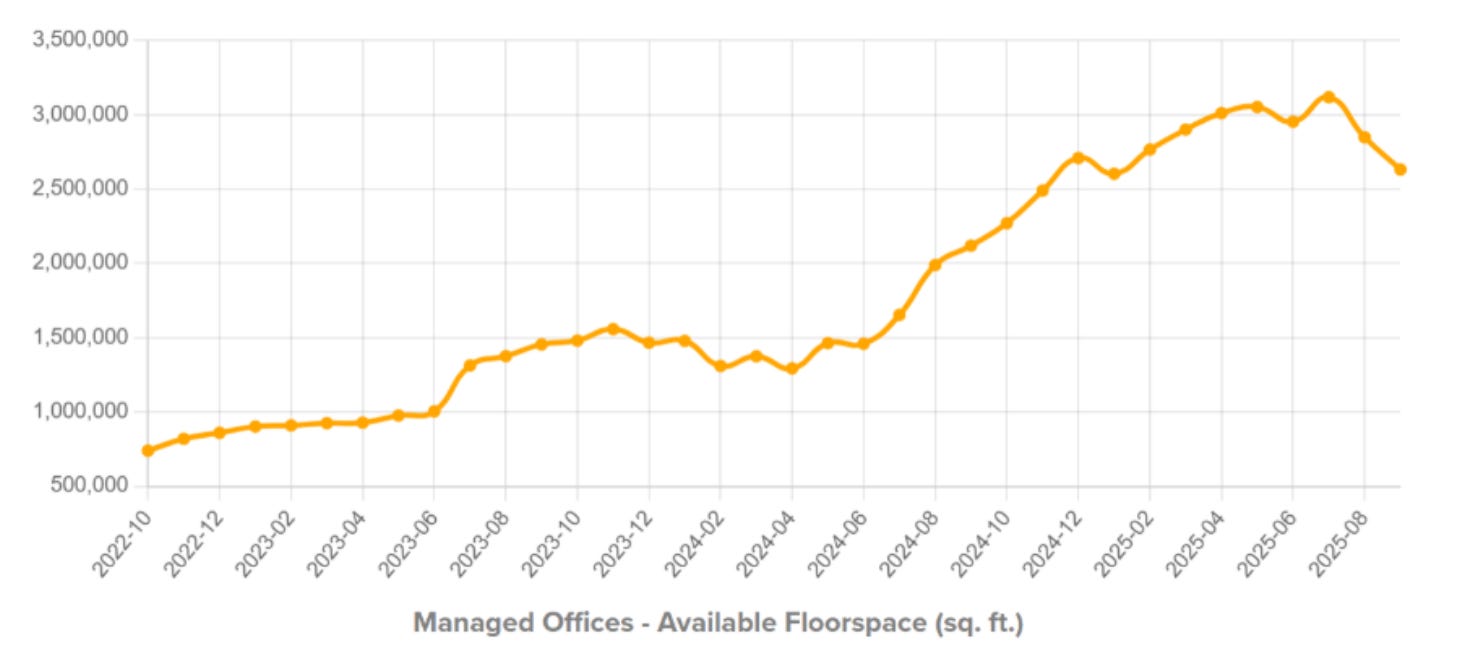The New Era of ‘Landlord Flex’
Part 2 of 4 · Q3 Rubberdesk Report: Flex Is the Backbone of the Brave Economy
Welcome to the era of Landlord Flex.
While landlords were once the quieter partners in the office space equation, now they’re stepping out of the shadows and into the spotlight.
In today’s brave economy, where adaptability trumps tradition, landlords are going beyond leasing space, building flexible portfolios that reflect the real crisis they face.





